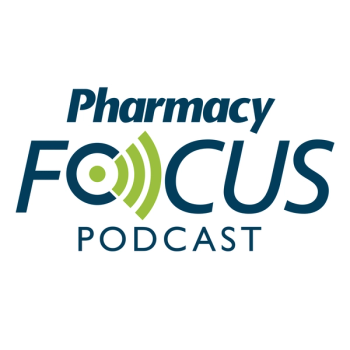
The findings contrast with those for adult BMI, which indicate that women who gain weight after menopause have an increased risk of postmenopausal breast cancer.

The findings contrast with those for adult BMI, which indicate that women who gain weight after menopause have an increased risk of postmenopausal breast cancer.

Hannah Fish, PharmD, National Community Pharmacists Association associate director of Strategic Initiatives, discusses the next phase of the COVID-19 vaccination rollout following the FDA expanding the Pfizer-BioNTech COVID-19 vaccine EUA to include children ages 12 and older.

Even with these data, the adverse effects were lessened in people taking non-steroidal anti-inflammatory drugs (NSAIDs), such as aspirin.

This week on Pharmacy Times, there are a number of important topics that will be covered and posted throughout the week.

Erenumab-aooe (Aimovig, Amgen) is indicated for the preventive treatment of migraine in adults, making it the first approved preventive migraine treatment of its kind.

Programs that provide ongoing support to patients with painful conditions and complex medication regimens may also help them avoid using opioid pain medications or reduce the amount that they use, according to a study published in Rheumatology and Therapy.

Court challenge raises questions about due process and whether agency perceived immediate and serious threat.

According to the authors of the study, 60% of men and 50% of women participating in the study were not consuming as much vitamin C as was recommended.

The Pharmacy Times® Pharmacy Focus podcast provides the latest industry news and information, thought-leader insights, clinical updates, patient counseling tools, and innovative solutions for the everyday practice and business of pharmacy.

Presented at the European Congress on Obesity, the analysis includes data from 121 trials with nearly 10,000 adult participants.

The durvalumab plus chemotherapy arm demonstrated a statistically significant improvement in PFS versus chemotherapy in the previous analysis, but the OS trend observed in this analysis did not achieve statistical significance.

Further, more than 67% of respondents indicated that vaccination will benefit their physical health, as well.

Obesity-related factors, including changes to the innate and adaptive immune systems brought on by excess weight, are believed to be associated with an increased risk of contracting various viral diseases.

When patients report pharmacy errors, respond with empathy and transparency to avoid alienating them.

More than half of all female patients who undergo bariatric surgery are of reproductive age, and the resulting weight loss improves fertility, as well as reducing the risk of gestational diabetes and hypertensive disorders during pregnancy.

With the creation of a diabetes prevention program, participants are able to make lasting behavioral changes, such as eating healthier, increasing physical activity, and improving problem-solving skills.

The American Society of Health-System Pharmacists' (ASHP) Pharmacy Residency Match program continued its growth trend with nearly 5500 pharmacy students and residents paired with residency positions in 2021.

As breast cancer becomes an increasingly treatable disease, clinicians should provide personalized follow-up care to address varying burdens of symptoms up to 5 years after diagnosis.

In the summer of 2020, there were 2.5 times as many deaths per capita for Black Americans, compared to White Americans.

Case studies include recommendations for eye pain and allergy relief.

Finding the right medication or drug combination for individual patients is critical.

The institution joins 3 other ACPE-accredited pharmacy programs in North Carolina.

High engagement and collaboration between health systems and health plans is essential to implementing value-based models, according to a session at the Pharmacy Quality Alliance 2021 Annual Conference.

Policy changes impacting the star ratings for 2022 include additional flexibility provided during the COVID-19 pandemic and a revised Extreme and Uncontrollable Circumstances policy.

The agency also advised that fully vaccinated individuals can resume many activities without wearing a mask or social distancing.

Working with colleagues or patients from different cultural backgrounds requires an open mind, especially when addressing common issues such as vaccine hesitancy.

During National Women’s Health Week, which takes place from May 9 to May 15, CVS Health announced new initiatives to further support women’s health and wellness during the month of May.

The KEYNOTE-522 trial met its dual primary endpoints of pathologic complete response and event-free survival, showing a statistically significant and clinically meaningful improvement in EFS compared to neoadjuvant chemotherapy alone.

Some of the best accounts on social media have built an amazing, supportive community with just a few thousand followers.

Vericiguat (Verquvo, Merck) is indicated to reduce the risk of cardiovascular death, heart failure hospitalizations, or the need for outpatient intravenous diuretics.